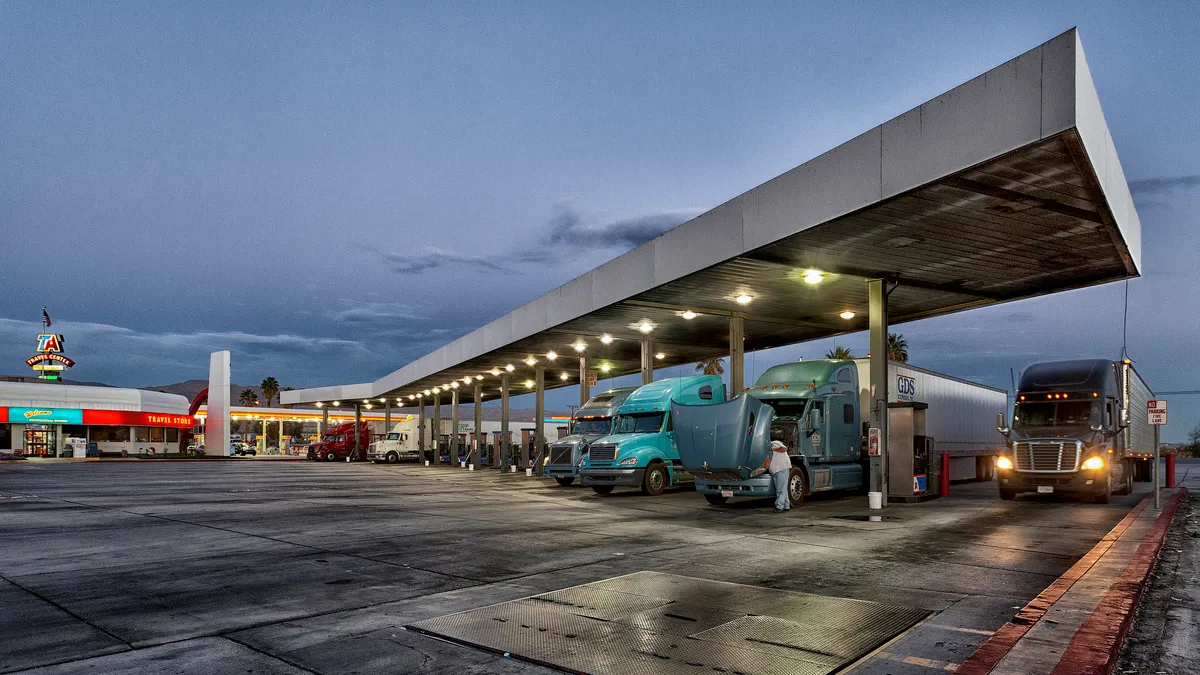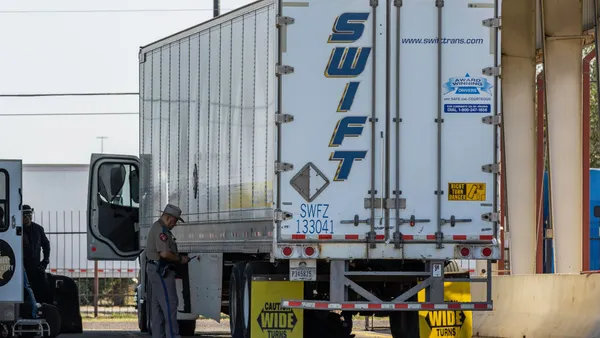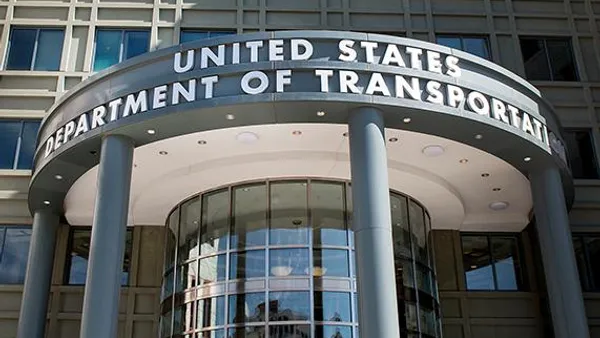UPDATE: May 31, 2022: The FMCSA once again extended its pandemic-related national emergency declaration to grant some HOS exemptions through the end of August. The agency last extended the declaration in February, which was set to expire on May 31.
UPDATE: Sept. 14, 2020: The FMCSA extended its pandemic-related national emergency declaration, which grants some HOS exemptions, through Dec. 31. This is the first multi-month extension the agency has given this declaration, opting before to issue month-long extensions.
The new extension does not contain any changes from the previous iteration of the declaration, which was set to expire Monday.
UPDATE: Aug. 12, 2020: The FMCSA once more extended and modified its pandemic-related national emergency declaration, which grants some HOS exemptions. The declaration is now effective through Sept. 14, and it was set to expire Friday through an extension granted in July.
The modification adds "food, paper products and other groceries for emergency restocking of distribution centers or stores" back to the list of products that qualify the driver for HOS exemptions, citing "current conditions." FMCSA removed that category from the declaration extension issued in June, when the agency said there was "no longer a need for emergency relief" in that area.
UPDATE: July 13, 2020: The FMCSA on Monday extended its national emergency declaration, which grants some HOS exemptions, through Aug. 14. It was slated to expire Tuesday, via an extension issued in June.
The newest notice does not change the modifications the agency set forth in its previous extension.
Dive Brief:
- The FMCSA has issued a third extension on its COVID-19 emergency declaration, which implemented some HOS exemptions, according to a notice Monday. The declaration is effective starting June 15 through July 14 and covers the transportation of livestock and livestock feed; medical supplies and equipment related to the coronavirus; and supplies and equipment used for community safety and sanitation, including personal protective equipment (PPE).
- FMCSA's extension rolls back the number of trucking operations exempt from HOS rules under the last iteration of the declaration. "FMCSA has concluded that there is no longer a need for emergency relief with respect to the other categories of supplies, equipment, and persons" covered by previous versions of the declaration, the agency said.
- "The Agency modified this declaration based on the direct feedback from industry and safety enforcement partners," an FMCSA spokesperson told Transport Dive via email.
Dive Insight
The FMCSA's emergency declaration modifications signal that, while the pandemic is ongoing, the supply chain is able to more efficiently meet demand for essential products and people.
When the FMCSA originally issued the emergency declaration March 13, consumers were clearing shelves. Grocery items and personal protective equipment (PPE) were difficult to come by. The agency accounted for that on its list of items that qualified the driver for HOS exemptions under the emergency declaration.
After a couple modifications, the FMCSA's list of items was at its fullest after an extension issued April 8:
- Medical supplies and equipment related to the coronavirus.
- Supplies and equipment for preventative measures in healthcare facilities and communities, including masks, gloves, hand sanitizer, soap and disinfectants.
- Food for emergency restocking of stores.
- Equipment, supplies and people necessary to establish and manage temporary housing and quarantine facilities.
- People who federal, state or local governments say need transport for medical, isolation or quarantine purposes.
- Emergency personnel.
- Paper products and other groceries for emergency restocking of distribution centers or stores.
- Immediate precursor raw materials — including paper, plastic or alcohol — to be used for the manufacture of essential items.
- Fuel.
- Liquefied gases to be used in refrigeration or cooling systems.
Now, that list comprises:
- Medical supplies and equipment related to the coronavirus.
- Supplies and equipment for preventative measures in healthcare facilities and communities, including masks, gloves, hand sanitizer, soap and disinfectants.
- Livestock and livestock feed.
Eliminations from the list of qualifying items reflect the reopening of businesses. The Centers for Disease Control and Prevention (CDC) reports a continued decrease or stabilization of the rate of people testing positive for the coronavirus across the country. Other reports, though, show recent spikes in COVID-19-related hospitalizations.
As the FMCSA's emergency HOS exemptions apply to fewer types of loads, fleets are looking ahead to the implementation of the agency's final HOS rule, set to take effect late September.
"With all the uncertainty of late, carriers and shippers appreciate the HOS changes," Gail Rutkowski, executive director at the National Shippers Strategic Transportation Council (NASSTRAC), told Transport Dive, discussing the final rule. "Any added flexibility is a good thing."













